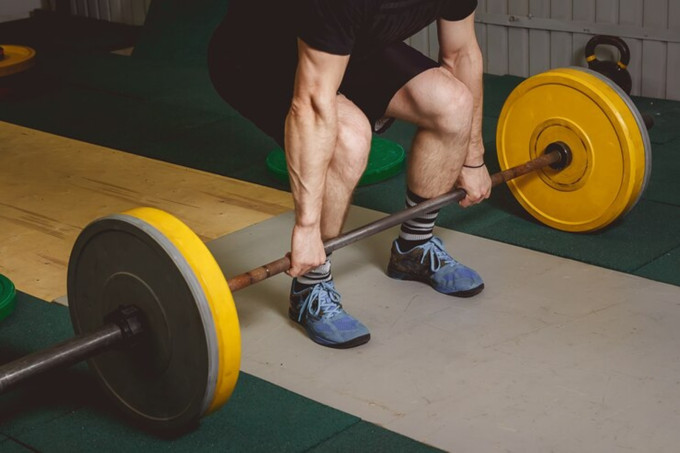Experience knee pain after weightlifting? Here’s why it’s happening and what to do about it
Whether a regular gym-goer or a beginner who is still learning how to strength train properly, we have all been there.
At one point or another, we have felt a little too overconfident about adding more weights, or our ‘seemingly perfect’ form in an exercise; ultimately resulting in catastrophe.

While the gym is a safe and inclusive space for all, it is also a place where accidents are waiting to happen. It is common knowledge that injuries cannot always be avoided, but it is best to stay safe by practicing the correct form and being fully present when using heavy equipment.
Among those who lift weights, experiencing knee pain during exercise is a common complaint. You go in for a squat and then suddenly, you feel this shooting pain in one or both of your knees. It is a tell-tale sign that something is wrong.
Who can experience knee pain?
While quickly correcting your form can be an obvious solution to your problem, continuing the use of heavy weights even while your knee is screaming for help can cause long-term damage. Spoorthi S, fitness expert at Cult explains, “Individuals who practice resistance training but do not focus enough on addressing recovery and/or muscular imbalances are prone to experience pain in the knee area.”
“This can mostly be attributed to patellar tendonitis which is the inflammation of the tendon that is attached to the knee cap, which can feel like a ‘burning sensation’. Magnesium deficiency can also be one of the causes of this condition,” she adds.
Furthermore, weightlifters can experience pain due to strain and inflammation of the soft tissue structures around the knee, tightness and spasm of the hip and thigh muscles, inadequate warm-up, as well as chronic wear and tear of the knee cartilage, adds Dr Samarth Arya, consultant – orthopaedics and robotic joint replacement surgery, Manipal Hospital, Bengaluru.
Exercises like squats, deadlifts, lunges, or any requiring knee flexion can exacerbate this problem, according to Spoorthi. She states that high-impact movements can also contribute to excess pain.
 While quickly correcting your form can be an obvious solution to your problem, continuing the use of heavy weights even while your knee is screaming for help can cause long-term damage. (Source: Freepik)
While quickly correcting your form can be an obvious solution to your problem, continuing the use of heavy weights even while your knee is screaming for help can cause long-term damage. (Source: Freepik)
Alternative or modified movements that can help alleviate discomfort
When experiencing pain in the knee, it is important to look for exercises that do not put a lot of pressure on it for some time. Opt for simpler, modified versions of your usual exercises, or choose alternative exercises that target the same muscles but don’t affect your knee.
Spoorthi suggests that exercises with a limited range of motion can help. Avoid high-impact movement to reduce the discomfort, she says, understand the area of pain and accordingly modify the exercises so that you do not push the joint to its full capacity.
Strategies or exercises to strengthen the knees and avoid knee pain
When it comes to lifting weights, the best strategy is taking preventative measures to avoid future injuries.
“Focus on adequate recovery, do not overstrain the muscles. Practice regular myofascial release. Stretch and spend time addressing tightness in areas such as the quadriceps, hamstrings, and glutes,” recommends Spoorthi.
Most importantly, remember to warm up well with some mobility, she stresses. Practice stability exercises before starting any weight training routine.
What can you do if you are already suffering from this condition?
Spoorthi says that it is very important for you to rest properly, skip going to the gym, and let the inflammation go down.
“Modify your training to not aggravate the pain further. If pain persists, consult a physical therapist for the right recommendation of rehabilitation exercises,” she adds.
Disclaimer: The copyright of this article belongs to the original author. Reposting this article is solely for the purpose of information dissemination and does not constitute any investment advice. If there is any infringement, please contact us immediately. We will make corrections or deletions as necessary. Thank you.





